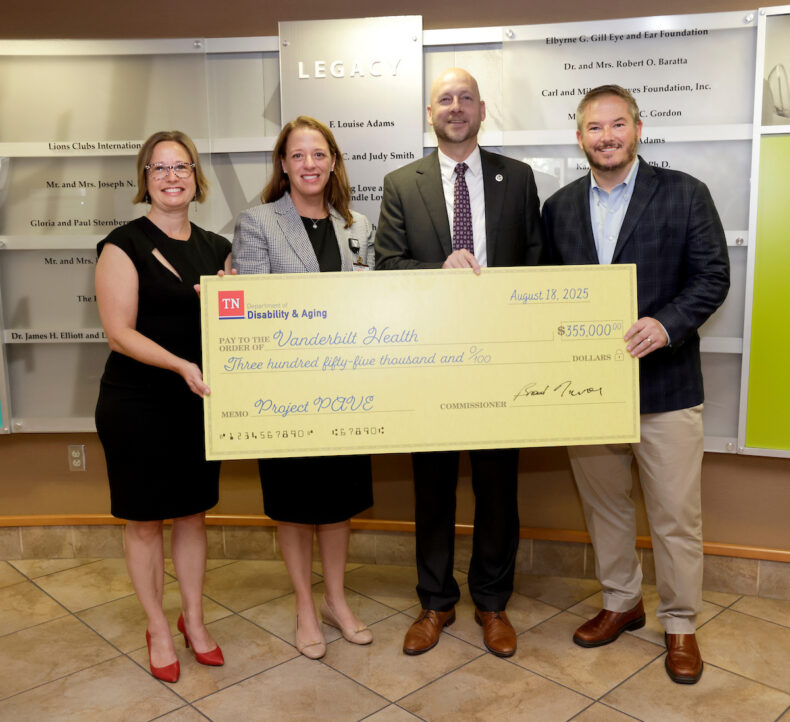
Project PAVE (Providing Access to the Visual Environment) has received funding from the Tennessee Department of Intellectual and Developmental Disabilities (DIDD) to continue the program that has provided low-vision evaluations for more than 2,150 school-age children in Tennessee since 1993.
The program was previously funded by the Tennessee Department of Education, but the department ended that funding in June 2021. Bridge funding from the Vanderbilt Eye Institute (VEI) kept the program operating on a limited basis until funding was secured from the DIDD in April.
“We are so grateful to Dr. (Paul) Sternberg from VEI who provided the bridge funding and Matt Scanlan (senior director of Community and Government Relations) who helped us obtain funding from the DIDD,” said Lori Ann Kehler, OD, associate professor of Ophthalmology and Visual Sciences, chief of the Optometry Service and the program’s principal investigator. “They really prioritized this program. We were able to quickly ramp back up and see the full capacity of children — 90 — that we normally see during an academic year,” she said.
The students with low vision are referred from schools across the state, the Tennessee School for the Blind and home-school programs.
Low vision is a reduction of eyesight caused by eye conditions or diseases, not correctable with medication, glasses, contact lenses or surgery. To be considered for the program, students must be 5-21 years old and be confirmed to have low vision — a best corrected visual acuity of 20/70 or worse in their better seeing eye.
The students are referred to the Tennessee Lions Pediatric Eye Center at VEI by either an ophthalmologist, optometrist, pediatrician or sometimes a special education director or classroom teacher from their school.
“These students need significant help in the classroom,” Kehler said, adding that for many of the students, being referred to the program is the only feasible way to obtain the low-vision devices they need, a key component in their continued education and future independence.
After it’s confirmed that a student is eligible, he or she will be scheduled for a comprehensive low vision examination. Most are seen at VEI, but about 20% are seen by Bruce Gilliland, OD, a Knoxville low-vision specialist who sees students from East Tennessee who can’t travel to Nashville for the exam.
After the evaluation, either Kehler or Gilliland will devise a plan, which normally includes prescribing optical devices. After that, one of three certified teachers of the visually impaired employed by VEI will travel to the child’s classroom to deliver the devices and provide training and technical assistance on how to use those devices — all at no cost to the students and their families.
“We know that if you give a child a magnifier but don’t teach them how to use it, it won’t get used,” Kehler said.
Three years after the initial examination, students enrolled in the program are eligible for re-evaluation, then provided with an update in optical devices if needed.
“Even if their vision hasn’t changed, their needs more than likely have changed,” Kehler said. “If they were in sixth grade when they were enrolled in the program, and ninth grade now, they probably need different tools to see in the classroom. If it’s determined they need an adjustment, that’s covered through the program.”
Sternberg said he is grateful for the state’s continued funding.
“I am thrilled that funding for the PAVE program has been reinstated,” he said. “The impact of PAVE on the well-being of visually impaired children in Tennessee is immeasurable. I want to thank Dr. Kehler and her colleagues for their patience as the State of Tennessee explored ways to support PAVE, and send a shoutout for the special efforts by Matt Scanlan and the Community and Government Relations team in bringing this renewed support to fruition,” Sternberg said.











